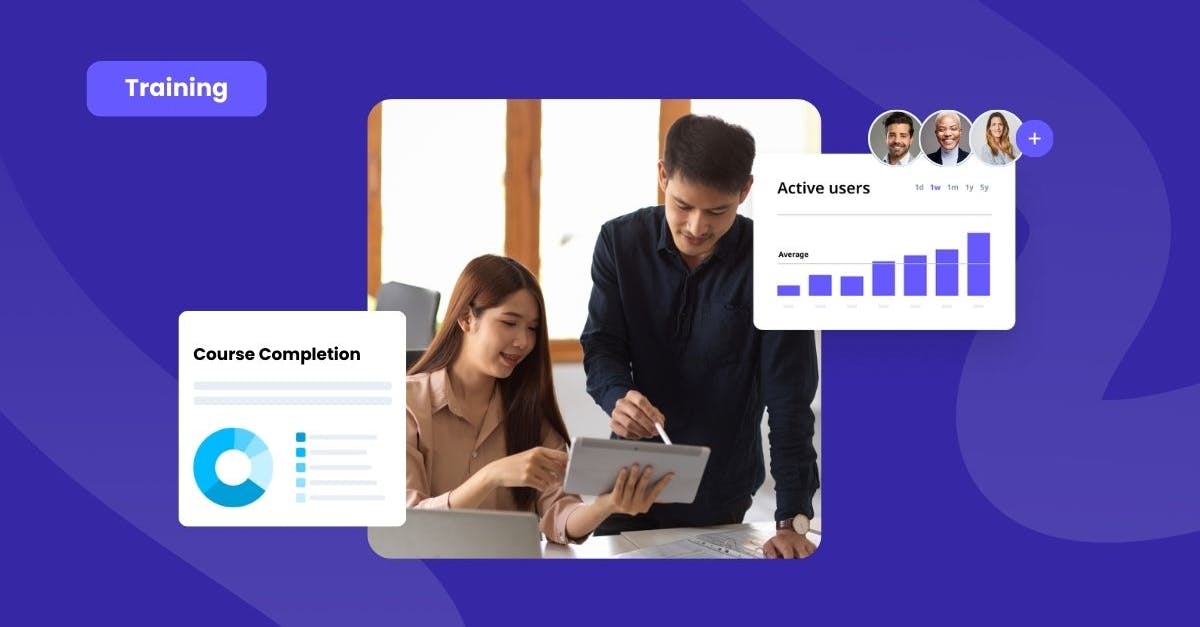What is Organizational Learning? A Guide
Published
November 22, 2024
Author
Share
Organizational learning is a process by which an organization collectively gains new knowledge and skills from its business experiences over time. This continuous improvement allows the organization to deepen its understanding of its procedures and systems.
These collected insights and innovations become valuable lessons that the organization shares and retains. This ultimately drives the business’s performance toward greater success.
Importance of Organizational Learning
Organizational learning and development are vital for a business’s enduring success in an ever-changing workplace environment. This approach can make your organization agile, collaborative, and efficient, allowing it to grow continuously. Here are a few reasons why organizational learning matters:
- Increased Innovation: Learning organizations encourage employees to share fresh ideas, leading to innovative improvements in products, systems, and processes.
- Improved Performance: Optimized strategies and processes allow teams to perform well, boosting productivity and profitability.
- Enhanced Adaptability: Organizations can stay ahead of the curve by responding quickly to new trends, preferences, conditions, and regulations.
- Centralized Knowledge Sharing: Businesses make informed decisions using information and data shared within their teams.
- Boosted Retention: Offering professional growth opportunities through learning is an effective retention strategy. It encourages team members to stay with the company longer as they develop their careers.
- Strengthened Resilience: Organizations equip themselves to face future crises by solving problems based on past failures and successes.
Examples of Organizational Learning
Organizational learning uses various strategies to develop a culture of improvement and development. Here are some of the best examples of how to apply the organizational learning theory in your business:
1. Training and Development Programs
Regular management training and development and employee training programs are a great way to update team skills and develop job expertise. These may include workshops, seminars, and online courses that enhance business knowledge.
2. Post-project Reviews
Conducting post-project reviews can help you understand the outcomes of business initiatives and identify ways to improve future projects.
3. Feedback Loops and Communication Channels
Open feedback and communication empower employees to share their opinions, insights, and reflections based on their work. These ideas can spark developments in operations and systems.
4. Process Improvement Methodologies
Implementing methodologies like Lean or Six Sigma, allows your organization to learn from past process inefficiencies.
5. Cross-functional Teams
Encouraging collaboration between two teams helps employees understand each other’s roles, workflows, and purposes. They can gain new skills and systems they wouldn’t have learned in their tasks.
6. Mentoring
Pairing less experienced employees with seasoned mentors gives them practical tips and techniques that formal courses can’t offer.
7. Knowledge Sharing
Centralizing organizational knowledge into a system or database allows teams to share valuable insight and information. This lets anyone find the knowledge they need to perform well.
Enhance Organizational Learning with SC Training
SC Training is a powerful learning platform for simple, flexible, and effective organizational learning.
Discover our agile and reliable solutions that allow your team to engage in impactful learning experiences that improve business performance:
- Easy-to-use Creation Tool: Drag and drop documents, videos, images, quizzes, and more to create engaging courses with no prior design experience needed.
- Adaptable Microlearning Courses: Deliver bite-sized lessons that fit into your team’s day, helping information stick in just five minutes.
- Assignable Social Learning Activities: Promote knowledge sharing and collaboration with a platform that encourages your teams to ask questions, clarify information, and solve problems.
- Exciting Gamification Features: Make learning fun by gamifying lessons with interactive courses that unlock potential.
Transform organizational learning with the top learning platform! Sign up for SC Training!
Author
Mackie Angat
Mackie Angat is a content specialist at SC Training, a frontline training platform dedicated to helping businesses achieve operational excellence. He brings knowledge and insights in compliance training, industrial safety, and quality management, allowing him to create content that addresses the needs and challenges of the construction and manufacturing industries. Outside of work, Mackie enjoys working out, exploring music, and watching films.

